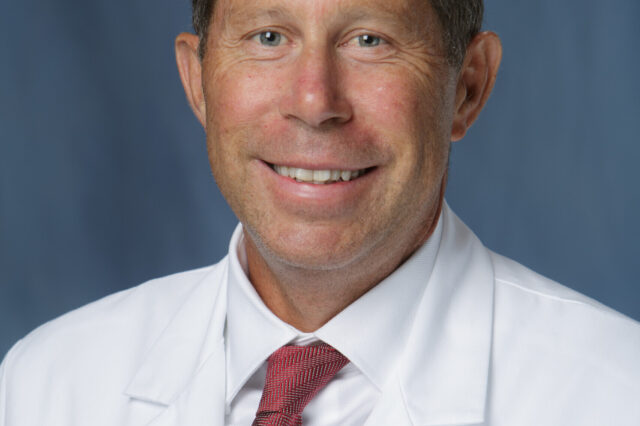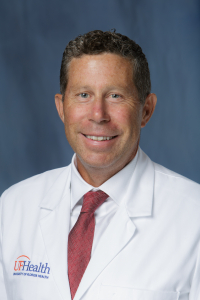Study helps hepatitis C patients, shows path for accelerating research and potential for drug approvals

Read the journal article here, which also contains a list of co-authors’ disclosures of funding and possible conflicts: https://www.gastrojournal.org/article/S0016-5085(19)41199-2/fulltext
Hepatitis C patient testimonial video: https://www.youtube.com/watch?v=vqkyhha_AX8
For more information, please contact: Meghan Meyer, meghanmeyer@ufl.edu or 352-273-8872.
 In a new kind of real-world study, a “pragmatic” clinical trial, UF researchers found that hepatitis C patients who previously did not respond to oral drug therapy were cured by a recently approved drug regimen.
In a new kind of real-world study, a “pragmatic” clinical trial, UF researchers found that hepatitis C patients who previously did not respond to oral drug therapy were cured by a recently approved drug regimen.
The study, published in the journal Gastroenterology’s December issue (available online) showed that the fixed-dose combination of glecaprevir/pibrentasvir, marketed as Mavyret™ by the manufacturer, AbbVie, cured hepatitis C in patients who previously did not respond to sofosbuvir plus an NS5A inhibitor. Glecaprevir/pibrentasvir can be used to treat all six common types of hepatitis C in patients without or with mild liver cirrhosis. Both drugs are direct-acting antivirals, a new type of drug that cures hepatitis C in nearly 95% of patients.
“This collaborative research effort has opened up new treatment options for hepatitis C patients who have failed prior therapy,” said study author David R. Nelson, M.D., senior vice president for health affairs at UF and president of UF Health. “Beyond the benefit for these patients, the study provides a model that others can follow in creating a real-world cohort, which may help future drug approvals, and inform on real-world safety and efficacy of approved drugs.”
Worldwide, the hepatitis C virus affects more than 71 million people, who often show no symptoms for years. When left untreated, the virus can cause liver cancer; cirrhosis or liver scarring, and other serious liver problems. Direct-acting antivirals have revolutionized treatment for hepatitis C since 2013: They are taken orally rather than injected, and have few side effects.
The research team designed and launched the study before the drug regimen was approved, and the study was accepted by the Food and Drug Administration, or FDA, at the time of approval to satisfy a post-marketing commitment for AbbVie. The pragmatic study design and collaboration between UF and AbbVie, leveraging the HCV-TARGET clinical sites and established infrastructure, provided a cost-effective and time-saving approach, overcoming obstacles of patient recruitment and resulting in timely sharing of study results to help guide clinicians and patient decisions regarding hepatitis C therapy.
HCV-TARGET is an international consortium of leading hepatitis C researchers who have established a common research database and are conducting a long-term study to answer questions about direct-acting antiviral therapy.
The network engages patients and community-based providers, and uses research tools and resources developed through the National Institutes of Health’s Clinical and Translational Science Awards Program. The network also shares data with the FDA and works with FDA scientists to improve clinical trial design. This unique platform allows for “pragmatic” clinical trials, in which research teams can explore how treatment works in the real world with real patients, without the constraints of traditional clinical trials, Nelson said.
The innovative platform led to an FDA award for Nelson and the co-founders of the HCV-TARGET research network, including Michael W. Fried, M.D., a professor of medicine at the University of North Carolina at Chapel Hill. Nelson leads the HCV-TARGET clinical coordinating center at UF, and Fried leads the data coordinating center at the University of North Carolina at Chapel Hill. They received the FDA’s Regulatory Science Excellence Honor Award in 2018.